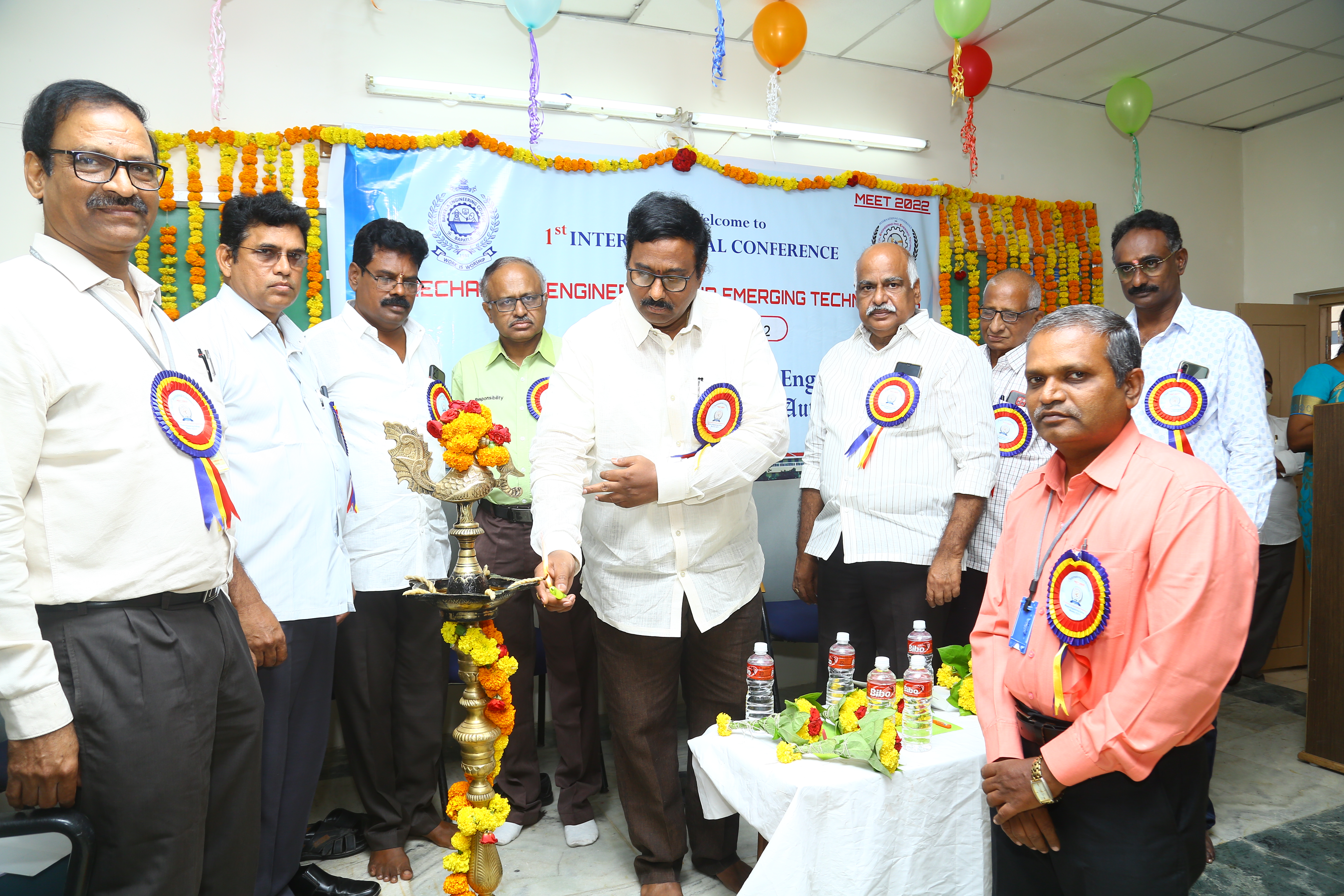





The Department was established in 1981 and accredited thrice in 2003,2007 & 2013. As on today twenty eight batches passed out with excellent academic performance. The Department has excellent lab facilities with state of the art equipment and it has highly qualified, experienced and committed faculty members. The Department gives importance not only to academic education but also ethical values and personality development of students. The students of MECHANICAL DEPARTMENT regularly organize various technical & extra curricular events and bring out magazine annually under MECHANICAL ENGINEERING STUDENTS ASSOCIATION.
The Department has exclusive Computer Centers equipped with 56 Core I7 Processor Systems ,one NT server and one hp- server and no. of Mechanical related software packages like ANSYS-19.1, Creo-Parametric 9.0, Pro/ENGINEER 4.0, CATIA V5 R15, ADMSS, INVENTOR SERIES, AUTOMATION STUDIO, STAR-CD for CAD lab and packages like Master CAM, Emco off line simulation etc., for CAM and Automation lab. Every year a good number of students qualify in GATE and they get M.Tech admission in prestigious Institutions like IIT’s, IISc & NIT’s. The Department is also actively involved in placement of the students through ON/OFF Campus Interviews. The department strives hard to impart quality education and to keep the students on the competitive edge of the present-day technology.| Course | Sanctioned Intake |
|---|---|
| PG-M.Tech (CAD/CAM) | 6 |
| UG-B.Tech (ME) | 60 |
To become a center of Excellence in producing the graduates as professional Mechanical Engineers with a high-quality education, innovative and entrepreneurial skills to secure the society and industry needs.
Program Educational Objectives (PEOs)
Program Specific Outcomes:Program Outcomes: Engineering Graduates will be able to:
- An ability to utilize the knowledge in engineering, basic sciences, and mathematics on an applied basis.
- An ability to apply the basic principles of mechanical engineering to the analysis, design development and implementation of advanced mechanical systems.
- An ability to apply the principles of manufacturing technology and scientific management towards improvement of product quality
1. Engineering knowledge: Apply the knowledge of mathematics, science, engineering fundamentals, and an engineering specialization to the solution of complex engineering problems.
2. Problem analysis: Identify, formulate, review research literature, and analyze complex engineering problems reaching substantiated conclusions using first principles of mathematics, natural sciences, and engineering sciences.
3. Design/development of solutions: Design solutions for complex engineering problems and design system components or processes that meet the specified needs with appropriate consideration for the public health and safety, and the cultural, societal, and environmental considerations.
4. Conduct investigations of complex problems: Use research-based knowledge and research methods including design of experiments, analysis and interpretation of data, and synthesis of the information to provide valid conclusions.
5. Modern tool usage: Create, select, and apply appropriate techniques, resources, and modern engineering and IT tools including prediction and modeling to complex engineering activities with an understanding of the limitations.
6. The engineer and society: Apply reasoning informed by the contextual knowledge to assess societal, health, safety, legal and cultural issues and the consequent responsibilities relevant to the professional engineering practice.
7. Environment and sustainability: Understand the impact of the professional engineering solutions in societal and environmental contexts, and demonstrate the knowledge of, and need for sustainable development.
8. Ethics: Apply ethical principles and commit to professional ethics and responsibilities and norms of the engineering practice.
9. Individual and team work: Function effectively as an individual, and as a member or leader in diverse teams, and in multidisciplinary settings.
10. Communication: Communicate effectively on complex engineering activities with the engineering community and with society at large, such as, being able to comprehend and write effective reports and design documentation, make effective presentations, and give and receive clear instructions.
11. Project management and finance: Demonstrate knowledge and understanding of the engineering and management principles and apply these to one’s own work, as a member and leader in a team, to manage projects and in multidisciplinary environments.
12. Life-long learning: Recognize the need for, and have the preparation and ability to engage in independent and life-long learning in the broadest context of technological change.